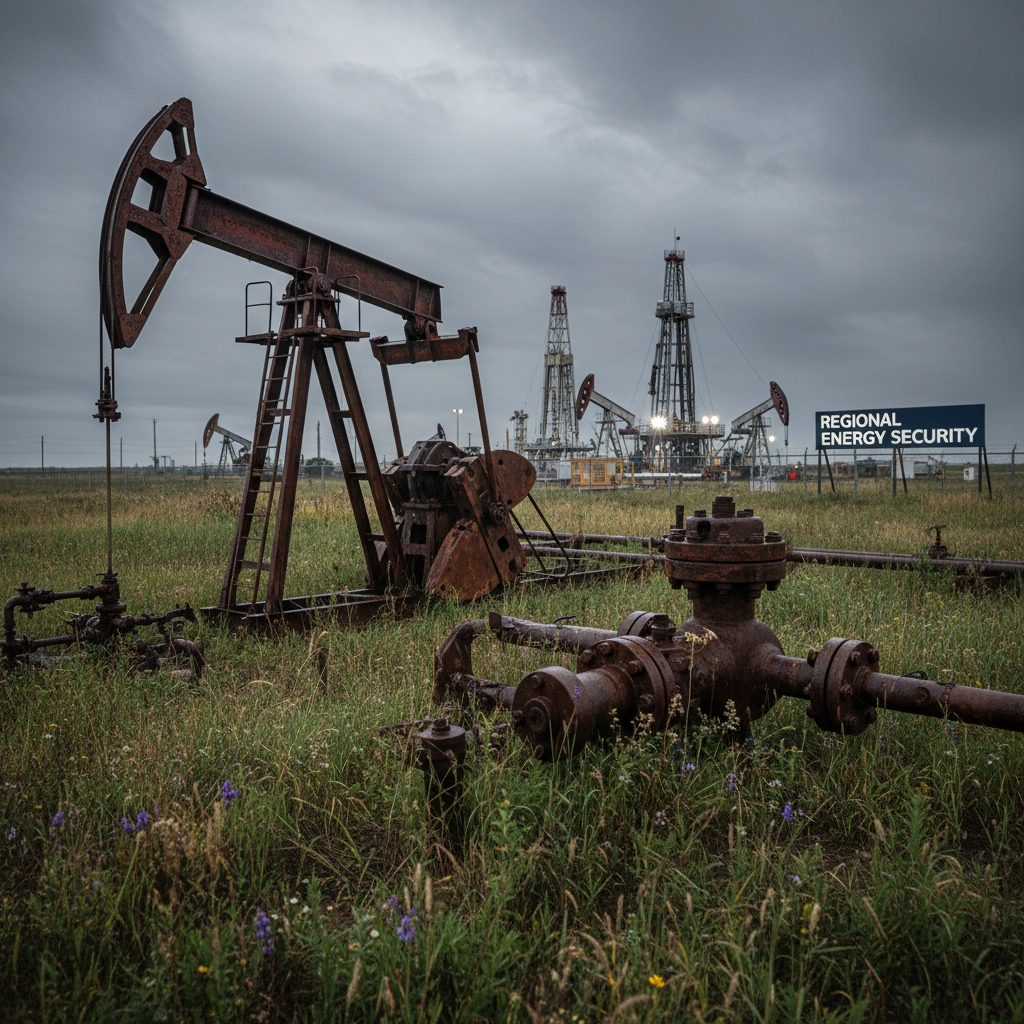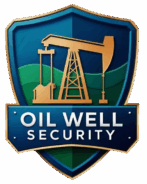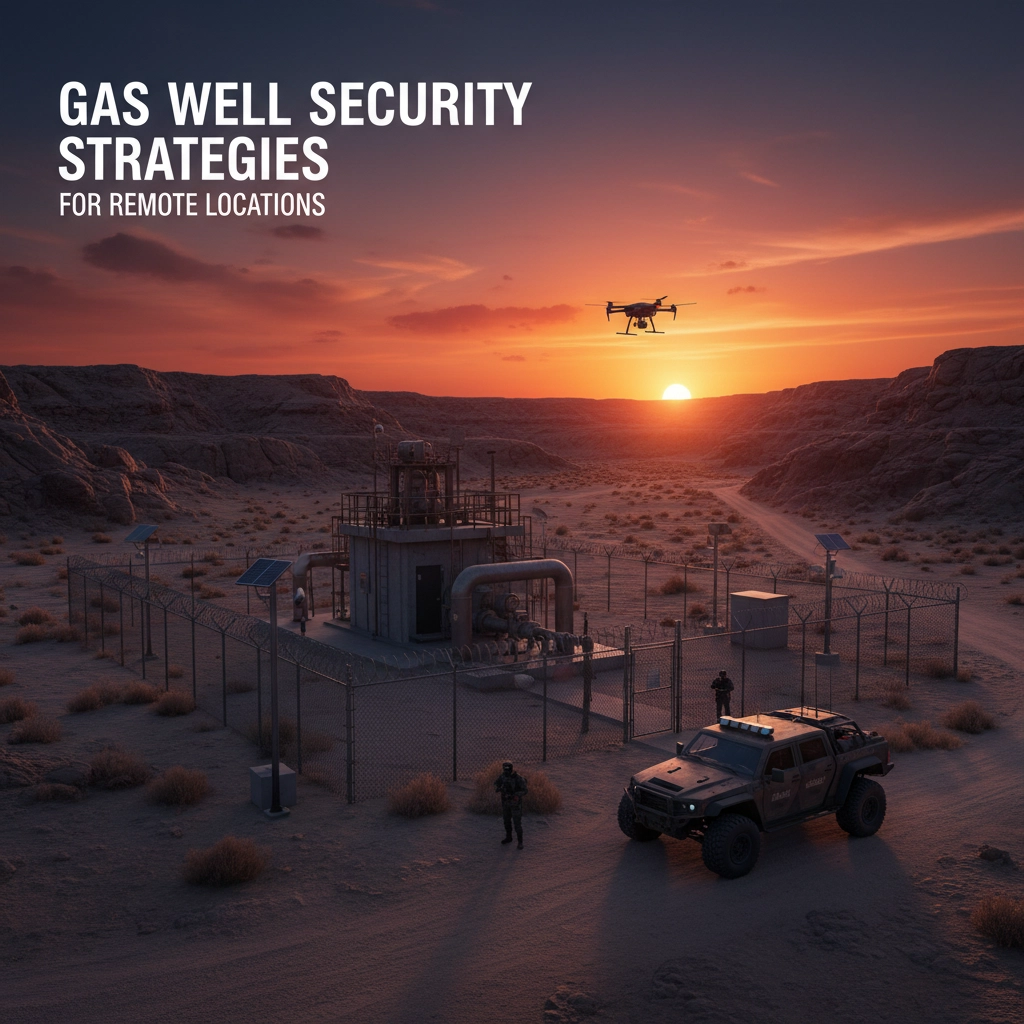Welcome to your December newsletter from Oil Well Security! As we close out 2025, this month brings significant developments in gas well security that will shape how you protect your operations moving forward. From new federal lease opportunities to enhanced training programs, December delivers crucial updates you need to stay ahead of emerging security challenges.
Major December Developments Affecting Your Security Planning
This December marks a pivotal moment for the oil and gas industry. The Bureau of Land Management's December 3rd lease sale in Wyoming offered 86 new oil and gas leases, signaling continued expansion in domestic energy production. When you're evaluating new lease acquisitions or expanding existing operations, your security infrastructure must evolve alongside your production capacity.

You face unique challenges when scaling security for new well sites. Each additional location multiplies your vulnerability points, requiring comprehensive security protocols that maintain consistency across all operations. Consider how your current security framework adapts to rapid expansion – if you're relying on ad-hoc solutions for each new site, you're creating gaps that malicious actors will exploit.
The December lease activity also highlights the importance of proactive security planning. You can't wait until production begins to implement robust security measures. Start your security assessment during the lease evaluation phase, factoring protection costs into your operational budgets from day one.
Smart Technology Integration Transforming Gas Well Protection
December 2025 showcases remarkable advances in intelligent security systems that revolutionize how you monitor and protect your assets. Modern gas well security no longer relies solely on physical presence – your security strategy must incorporate cutting-edge surveillance technology, automated threat detection, and rapid response capabilities.

Deploy smart camera systems with thermal imaging capabilities that function effectively in all weather conditions. These systems detect unauthorized personnel approaching your well sites before they reach critical infrastructure. When you integrate these cameras with motion sensors and perimeter alarms, you create multiple layers of protection that significantly reduce response times.
Your communication systems require equal attention. Implement redundant communication channels that ensure your security team maintains contact with monitoring stations even if primary systems fail. Consider satellite backup communications for remote locations where cellular coverage proves unreliable.
Real-time data analytics now enable predictive security measures. Your monitoring systems can identify patterns in attempted intrusions, helping you anticipate future threats and adjust patrol schedules accordingly. This intelligence-driven approach transforms reactive security into proactive protection.
Enhanced Training Programs Strengthen Industry Preparedness
December brings renewed focus on specialized training for gas well incident response. Pennsylvania's Act 13 Unconventional Gas Well Fund allocated $250,000 for fire, rescue, and EMS companies to prepare for gas well incidents through advanced training and specialized equipment procurement.

This initiative underscores a critical reality: your security team needs comprehensive training that goes beyond basic surveillance. Effective gas well security requires understanding the unique hazards associated with drilling operations, recognizing potential sabotage indicators, and coordinating with emergency responders during crisis situations.
Invest in regular training updates for your security personnel. The threats facing gas well operations evolve constantly, and yesterday's security protocols may prove inadequate against today's sophisticated attacks. Your team must understand both physical security measures and cybersecurity protocols that protect automated systems controlling well operations.
Cross-train your security staff with local emergency responders. When incidents occur, seamless coordination between your private security team and public safety officials can mean the difference between containment and catastrophe. Establish regular joint training exercises that familiarize all parties with your facility layouts, evacuation procedures, and emergency communication protocols.
Market Conditions Driving Security Investment Priorities
Natural gas prices stabilizing around $3.05 per MMBtu create favorable conditions for security infrastructure investments. When you're planning your 2026 security budget, current market stability provides the financial foundation for comprehensive protection upgrades.
Higher commodity prices justify enhanced security spending, but you must allocate these resources strategically. Focus your investments on security measures that provide measurable returns through reduced theft, minimized downtime, and improved regulatory compliance.

Consider the total cost of security breaches when evaluating protection investments. A single incident resulting in production shutdown, environmental contamination, or regulatory violations can cost exponentially more than comprehensive security systems. Your security budget should reflect this risk calculation, treating protection expenses as insurance against catastrophic losses.
Addressing Orphaned Wells Security Challenges
December discussions within the industry highlight growing concerns about orphaned wells posing security risks. These abandoned sites create unique vulnerabilities that affect entire regional security networks. If your operations are located near orphaned wells, your security planning must account for these additional risk factors.
Orphaned wells often lack proper monitoring and maintenance, making them attractive targets for illegal activities that could impact your nearby operations. Coordinate with state agencies responsible for orphaned well management to understand the security status of abandoned sites in your operational area.
Your security patrols should include visual inspections of nearby orphaned wells during routine rounds. Report any suspicious activity or unauthorized modifications to appropriate authorities immediately. These proactive measures help maintain regional security while demonstrating your commitment to community safety.
Strategic Security Planning for 2026 Operations
As December 2025 draws to a close, your security planning for 2026 must reflect lessons learned from this year's challenges and opportunities. The evolving threat landscape requires adaptive security strategies that can respond quickly to new risks while maintaining operational efficiency.

Develop comprehensive security assessments for all existing operations. Identify vulnerabilities that may have emerged through operational changes, equipment upgrades, or shifts in local security conditions. Your 2026 security plan should address these gaps while incorporating new technologies and training protocols.
Establish clear metrics for measuring security effectiveness. Track incident response times, false alarm rates, equipment reliability, and staff performance indicators. These measurements provide objective data for optimizing your security operations and justifying budget allocations.
Create contingency plans for various threat scenarios. Your security strategy must address everything from petty theft to sophisticated cyber attacks targeting operational systems. Develop specific response protocols for each threat type, ensuring your team knows exactly how to react when incidents occur.
Moving Forward with Confidence
December 2025 demonstrates that smart gas well security combines traditional protection methods with innovative technology solutions. Your success depends on implementing comprehensive security strategies that evolve with changing industry conditions and emerging threats.
The investment in advanced security systems pays dividends through reduced losses, improved operational continuity, and enhanced regulatory compliance. As you finalize your 2026 security planning, remember that effective protection requires ongoing commitment to training, technology updates, and strategic assessment.
For expert guidance on implementing smarter gas well security solutions tailored to your specific operational needs, contact Oil Well Security today. Our experienced team understands the unique challenges facing your industry and delivers customized protection strategies that safeguard your investments while supporting operational efficiency.
Contact Oil Well Security:
Email: info@oilwellsecurity.com
Phone: (970) 465-2525
Your security is our priority. Let us help you build the comprehensive protection your operations deserve.



